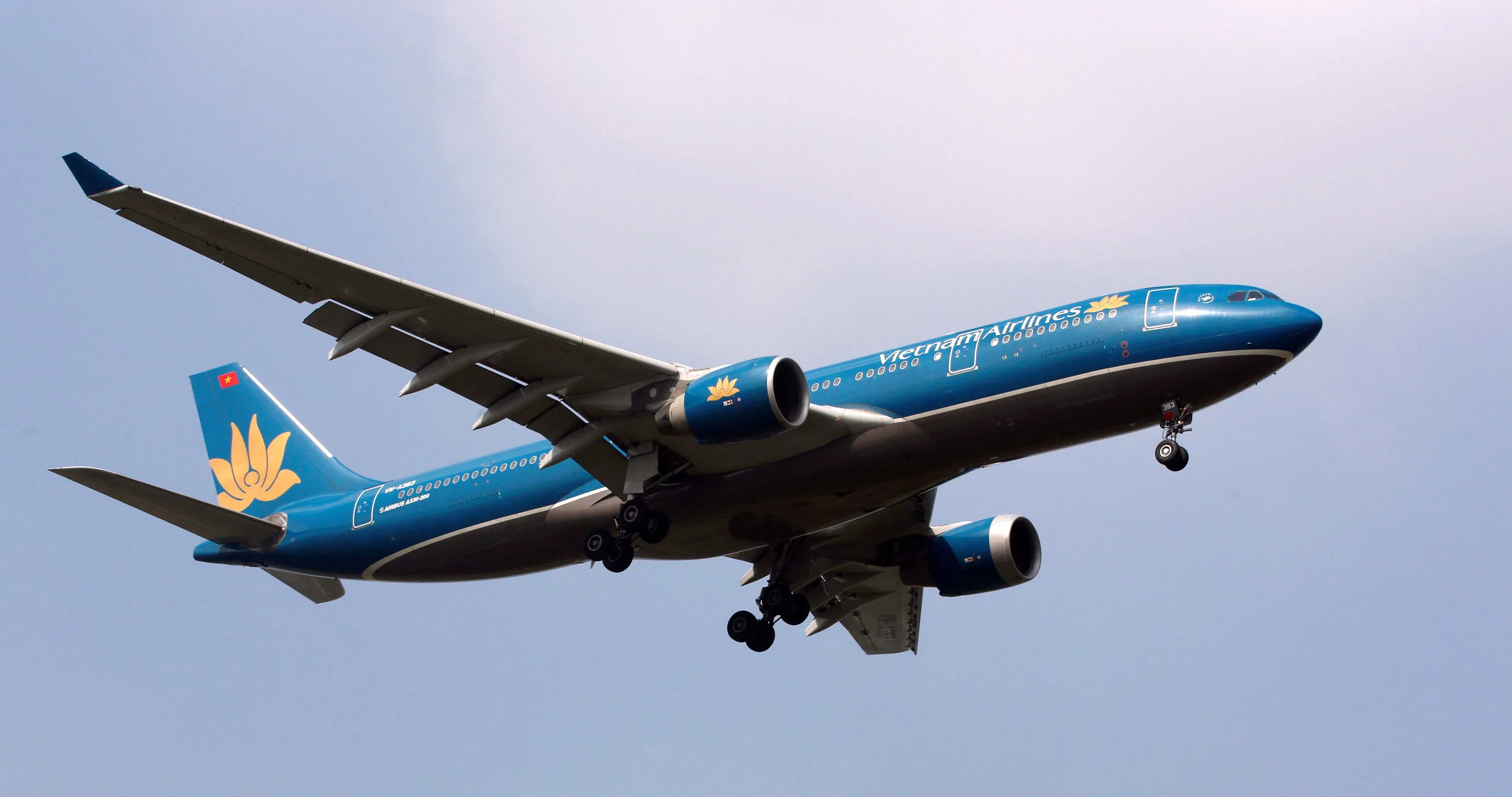A SURPRISE return to profit has propelled Vietnam Airlines to become the world’s best-performing airline stock this year, shrugging off the risk of bankruptcy as the company ’s post-pandemic recovery finally picks up momentum.
The state-owned carrier has rallied 179 per cent so far in 2024, lifted by a rebound in travel demand. That steered the company to post a bumper first-quarter profit after more than four years of consecutive losses.
It’s an impressive turnaround for an airline that until recently had been at risk of insolvency and in danger of being de-listed from the Ho Chi Minh Stock Exchange. It’s now outperforming regional rivals such as Singapore Airlines, which has risen 7.8 per cent this year, and Air China, down 3.7 per cent.
Vietnam Airlines is expecting to record “all-time high revenue and turnaround profit” this year, according to a Jul 4 note from PYN Fund Management, one of the company’s few institutional investors. It was highlighted as PYN Elite’s stock of the month for June by analyst Huyen Tran, with a forecast of growth in passengers and revenue this year.
Airlines across South-east Asia are seeing a resurgence in demand as key tourist markets slowly return. Visitors from China, the largest source of visitors for Vietnam before the pandemic, have streamed back in the first six months of this year, more than tripling from a year earlier. As the biggest local carrier operating routes to the mainland, Vietnam Airlines is poised to benefit.
The company remains wary of challenges to its business: In a statement last month, Vietnam Airlines chairman Dang Ngoc Hoa cited “macro-economic uncertainties” facing the industry, adding that its “primary goal” is to reduce losses while balancing revenue and spending.
A NEWSLETTER FOR YOU
Friday, 8.30 am
Asean Business
Business insights centering on South-east Asia’s fast-growing economies.
Even so, the airline has ambitions to expand this year by adding routes to South-east Asia and Europe. It’s also adjusting the frequency of its flights and increasing capacity along key routes to “capitalise on demand”.
Vietnam has big plans for long-term growth in the tourism sector. It’s been targeted as one of the key industries to keep powering an economy that’s on track to expand 6 per cent this year and 6.5 per cent in 2025, according to a survey conducted by Bloomberg.
“Vietnam’s ambition to boost its popularity with foreign travellers is poised to be a key growth driver for local carriers such as Vietjet and Vietnam Airlines,” according to Bloomberg Intelligence analysts Tim Bacchus and Eric Zhu.
The aim to reach 70 million international arrivals by 2045 “could propel the country into becoming the second-biggest tourism destination in South-east Asia after Thailand”, they said.
The domestic aviation market is also experiencing significant expansion with the number of passengers set to increase 15 per cent this year compared to 2023, according to the Civil Aviation Authority of Vietnam. It sees domestic cargo trade up 8.5 per cent from last year.
Despite the recent rally, the airline remains a relative minnow in the field with a market value of 76 trillion dong (S$4 billion). That puts it roughly half the size of Australia’s Qantas Airways and one-fifth that of Singapore Airlines.
In what would be a distinct reversal of fortunes, Vietnam Air is targeting an after-tax profit of 4.2 trillion dong this year, according to a statement on the company’s website. That’s after posting a loss of 5.6 trillion dong in 2023.
Future tests
One potential hurdle to expansion is a shortage of aircraft. The country’s aviation agency has encouraged airlines to lease more planes to meet rising demand after a number of jets were grounded due to engine recalls.
Other challenges may also lie ahead.
The airline has been cut to sell from reduce by Ho Chi Minh City Securities analyst Che Thi Mai Trang, who said the stock price “looks overvalued”. The brokerage also lowered its earnings estimates “as domestic demand has been weaker than our expectations”.
The carrier, whose shares are only allowed to trade in afternoon sessions after failing to report earnings in time, still needs to push ahead with its planned restructuring and refinancing efforts.
Last month, the National Assembly approved an extension on its four trillion dong state-backed loans, a sign of support from the government which controls an 86 per cent stake in the carrier.
The airline has described 2024 as a year of overcoming challenges and recovery. The focus now, it says, is to “lay the foundation for sustainable development”. BLOOMBERG




